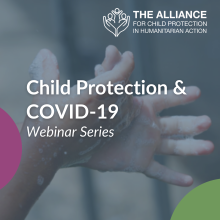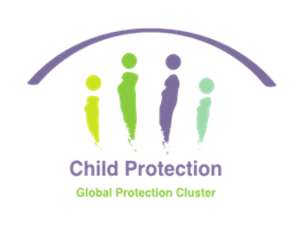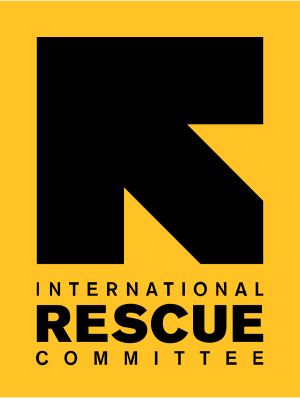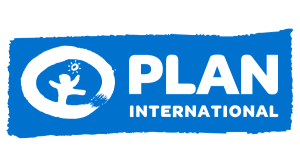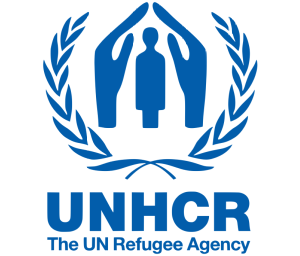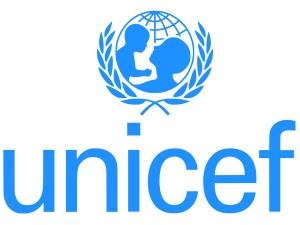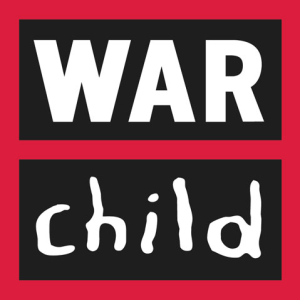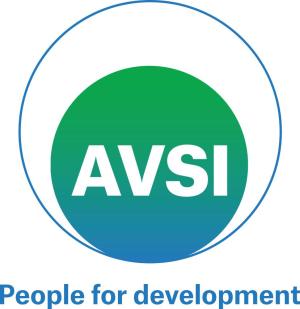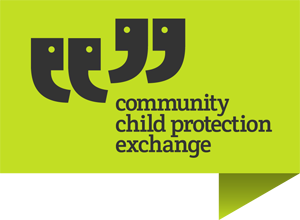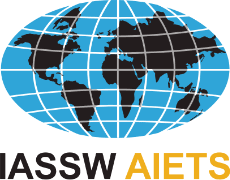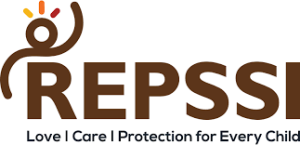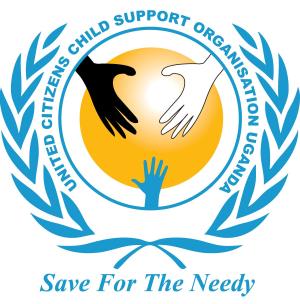
Led By: World Vision International
Contact us at: ccp.tf@alliancecpha.org
Our Mission
To support member agencies with the tools, resources, and skills needed to implement high-quality, community-level child protection programmes in humanitarian and fragile settings in an efficient and coordinated way.
Download our Offer of Support here.
Key Priorities of the CCP Task Force
- Facilitate access to interagency guidance and tools to operationalise Standard 17 Community-level Approaches for Child Protection practitioners and other relevant stakeholders.
- Develop and disseminate CCP tools, training materials and resources for agencies and actors to plan and implement effective CCP programmes in humanitarian contexts.
- Increase learning and evidence-based on community-level approaches in protecting children.
- Facilitate the coordination, participation and contributions of all CCP TF members as well as efficient collaboration between other groups and entities internal and external to he Alliance.
- Review documents/tools and answer questions related to CCP when possible and relevant.
Task Force Member Organisations
Key Tools
Community-level Child Protection Task Force - Offer of Support
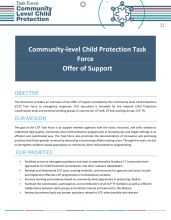
This Offer of Support outlines how the Community-level Child Protection (CCP) Task Force supports member agencies by providing the tools, resources, and skills needed to implement high-quality, community-level child protection programmes in humanitarian and fragile settings in an efficient and coordinated way.
It highlights the CCP Task Force's mission, priorities, and the practical support
Theory of Change for Community-level Child Protection Programming in Humanitarian Action

This Theory of Change (ToC) has been developed by the Community-level Child Protection (CCP) Task Force of the Alliance for Child Protection in Humanitarian Action (the Alliance). It is designed to build a common understanding amongst humanitarian agencies on the core
objective of CCP programming: ‘Reaching higher levels of community ownership for the protection of children in their communities in
Resources
Community Child Protection Volunteer Toolkit and Training Manual
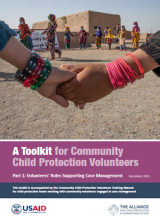
Report | Community Engagement in Case Management
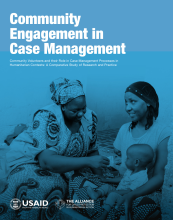
REPORT | MENTAL HEALTH AND PSYCHOSOCIAL SUPPORT FOR CHILDREN IN HUMANITARIAN SETTINGS: AN UPDATED REVIEW OF EVIDENCE AND PRACTICE, 2020
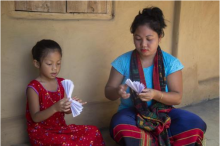
Community-Level Child Protection Online Learning Series
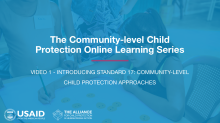
Working with Communities to Keep Children Safe, v.1.1
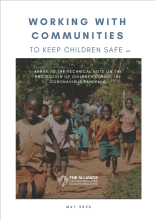
Capacity-Building Package | Strengthening Community-level Child Protection in Humanitarian Action

A Reflective Field Guide: Community-level Approaches to Child Protection in Humanitarian Action
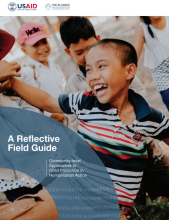
Summary: Community Based Child Protection in Humanitarian Action Definitions and Terminology

Media
Video | Introducing Standard 17: Community-level Approaches (Video 1)
Video | Community-level CP in Humanitarian Action: The Need for a Shift in Mindset (Video 3)
Video | Reflecting on Current Community-Level Programming (Video 2)
Video | The Reflective Field Guide: Community-level Approaches to CP in Humanitarian Action (Video 4)
Strengthening Community Based Child Protection in Humanitarian Settings: PowerPoint
Webinars
Webinar | New Ways of Working - Theory of Change for Community-level Child Protection Programming in Humanitarian Settings

Global Launch | Community Volunteer Toolkit and Training Manual: Part 1. Volunteers’ Roles in Case Management
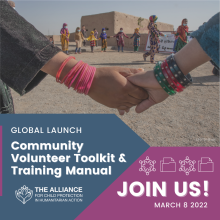
Webinar | Virtual Launch of the Community Engagement in Case Management Study
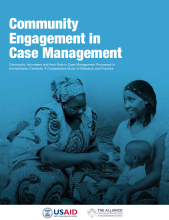
Webinar | Working with Communities to Keep Children Safe in Times of COVID-19
